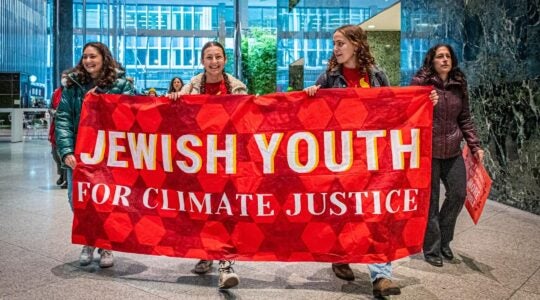While there are rabbis these days who are hailed in the media as major moral and spiritual leaders, Rabbi Harold Schulweis, whose Valley Beth Shalom in the San Fernando Valley of California became one of the most creative and dynamic congregations in the country during his four decades of leadership, made his mark before national magazines compiled “Top Rabbis” lists. Rabbi Schulweis, a native of the Bronx who died at 89 last week after a long battle with heart disease, was less interested in glory than he was in transforming Jews on the sidelines into active participants in their religious life (see Obituary on page 24). His appeal was to their minds as well as their hearts, and his teachings — through his sermons, essays, poetry, wit and compassion — helped his synagogue become a caring and sacred community, leading the way for others to follow.
As Valley Beth Shalom grew to become the largest Conservative congregation in the western U.S., Rabbi Schulweis developed a national reputation, and his addresses as scholar-in-residence in the 1970s and ’80s at the annual General Assembly of what is now known as the Jewish Federations of North America were a highlight for delegates. He was a gifted orator, but most inspiring were his pacesetting ideas to make synagogue life more personal, participatory and meaningful. They included his creation in 1971 of chavurot within the synagogue, encouraging small groups of families to practice religious life and share celebrations together, and his “para-rabbinic” effort to train lay people to take on rabbinic tasks like officiating at a mezuzah placement ceremony.
Among his other innovations, in 1985, he helped found Mazon, with Leonard Fein, to ease hunger and poverty in the U.S.; in 1986, he created a group now known as the Jewish Foundation for the Righteous, to honor and support thousands of Christians who saved Jews during the Holocaust; and in 2004, his call for a Jewish response to genocide led to the founding of the Jewish World Watch, a coalition of groups addressing genocide in Darfur and other trouble spots. Rabbi Schulweis was among the first to welcome children and adults with special needs to services. He championed outreach to the intermarried and to gays and lesbians.
At his funeral, attended by 1,500 people, Rabbi Edward Feinstein of Valley Beth Shalom, said “the essence of what Rabbi Schulweis taught us” is that “God is not above us but in our own acts and words. … Divinity is within us.”
May his memory be a blessing.
The New York Jewish Week brings you the stories behind the headlines, keeping you connected to Jewish life in New York. Help sustain the reporting you trust by donating today.




